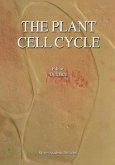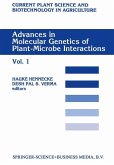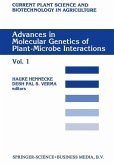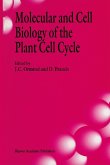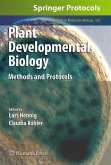Considerable advances have been made in our understanding of the eukaryotic cell cycle at the molecular level over the past two decades or so, particularly in yeast and in animal systems. However, only in the past three or four years has progress been made in plants at the molecular level. The present volume brings together molecular biologists, cell biologists and physiologists to discuss this recent progress and how it relates to our understanding of the regulation of plant growth and development.
The opening paper summarises the progress which has been made with fission yeast. Subsequent papers explore what is known about cell cycle control at the molecular level in plants, and about cell cycle regulation in specific physiological systems, ending with summary papers on cell division in roots and shoots.
The book comprises up-to-date findings on a fundamental aspect of plant growth and development, and as such will be of particular interest to advanced undergraduates, postgraduates and research scientists in the fields of molecular biology, cell biology and physiology.
The opening paper summarises the progress which has been made with fission yeast. Subsequent papers explore what is known about cell cycle control at the molecular level in plants, and about cell cycle regulation in specific physiological systems, ending with summary papers on cell division in roots and shoots.
The book comprises up-to-date findings on a fundamental aspect of plant growth and development, and as such will be of particular interest to advanced undergraduates, postgraduates and research scientists in the fields of molecular biology, cell biology and physiology.
` This timely volume will interest all cell biologists in search of fertile ground for a foray into plant development and cell division regulation. Given the ease of manipulation of plants, the accessibility of diverse genetic stocks, the absence of constraints imposed by `plants rights' activists (so far!), and the importance of this kingdom for the survival of our own, the book should serve to catalyze the migration of experimental biologists over to the green side of life. '
Thomas Jacobs in Science, 262, November 1993
` Overall, I would recommend this book to anyone, from postgraduate level onwards, looking for a reference source for work on the plant cell cycle up to April 1992. '
Journal of Experimental Botany, 45:281, December 1994
Thomas Jacobs in Science, 262, November 1993
` Overall, I would recommend this book to anyone, from postgraduate level onwards, looking for a reference source for work on the plant cell cycle up to April 1992. '
Journal of Experimental Botany, 45:281, December 1994
` This timely volume will interest all cell biologists in search of fertile ground for a foray into plant development and cell division regulation. Given the ease of manipulation of plants, the accessibility of diverse genetic stocks, the absence of constraints imposed by `plants rights' activists (so far!), and the importance of this kingdom for the survival of our own, the book should serve to catalyze the migration of experimental biologists over to the green side of life. ' Thomas Jacobs in Science, 262, November 1993 ` Overall, I would recommend this book to anyone, from postgraduate level onwards, looking for a reference source for work on the plant cell cycle up to April 1992. ' Journal of Experimental Botany, 45:281, December 1994


